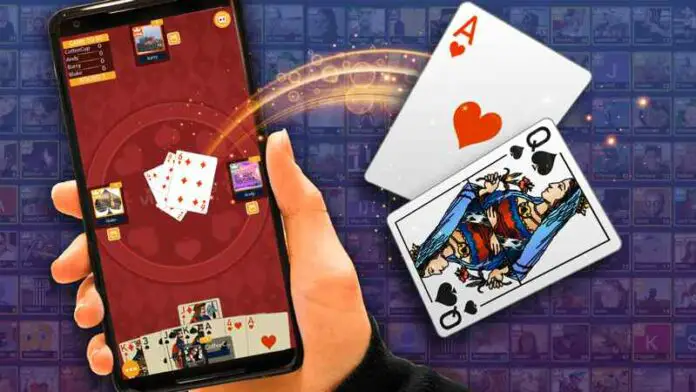The Age of Enlightenment was a time when people were free from prejudices. Also known as the Age of Reason, Europeans began questioning old-age beliefs and becoming more intellectual. It occurred during the 17th and 18th centuries, which was also a time when classic card games were popular among all society levels since it was more challenging than dice but used less intellect than chess.
To give you an idea of these games, we curated a list of different card titles developed from the early 1600s to the late 1700s. These games are still played today, which you can access on your PC and mobile devices! Are you ready? Keep on reading below!
Classic Card Games from the 17th and 18th Century
Learn about old-age classics that provided endless amusement during the Age of Enlightenment. These include:
1. All Fours
All Fours is a traditional English card game first described in Charles Cotton’s book called The Compleat Gamester in 1674. It was popular in pubs as a gambling game until the 19th century. Initially developed for two players, numerous variants were created to accommodate more players.
This trick-taking card game is now Trinidad’s national game and is best played with four players divided into two teams. Below are the Trinidadian basics:
- Win tricks with valuable cards to score points
- The team with the most valuable cards after trick-taking scores a point
- Extra points are dealt if the player takes the Jack from the trump suit
All Fours is the perfect choice if you enjoy trick-taking and love vintage games. Hone your skills in All Fours by downloading a mobile app or playing on a browser-based platform for free!
2. Cribbage
A game that was developed in 1662 is Cribbage. It was also devised in England as a matching/combination game, which means players must group cards to gain points. Due to its thrilling gameplay, it was characterized as Britain’s national card game and is the only card game that can be played in licensed pubs and clubs without the need for local authority permission.
Due to its numerous subtleties and straightforward rules, anyone can enjoy Cribbage online for free. No wonder it never lost its appeal and popularity throughout the years despite the many other matching games available today.
The game requires a board and pegs for scoring, but paper and pen are okay if you don’t have them. The objective is to score 121 points or a predetermined score to win! If you want to understand this, try Cribbage Online or Cribbage Pro like to understand why many people are still fascinated by it.
3. Twenty-oneCribbage OnlineCribbage OnlCribbage Onlineine
Another game that became a hit in the early 18th century is Twenty-one. It’s a family of card games thought to have originated in Spain and later popularized in France. It was formerly known as vingt-un in Britain, France, and America, which was the name given to card games of the gambling family.
Two of its well-known descendants are Blackjack and Pontoon, both prevalent casino card games in land-based casinos today. Since Twenty-one has countless variations, below are its general rules:
- The game involves a banker and a group of punters.
- Initially, the banker’s role rotates among the players.
- Bankers at casinos are held solely by casino staff.
- The banker deals two cards face-down to each punter.
- Bets can be placed before the cards are dealt or after viewing the first card.
- Punters can choose to receive another card or retain the ones they have
- Punters with an equivalent of 21 or closer to it wins, which doubles their stakes.
4. Reversis or Réversi Classic Card Games
Some people believe Hearts originated from Reversis, while others claim it to be a part of the Hearts family instead. Nevertheless, this trick-avoidance game is all about avoiding penalty points to win the game. Its origin is uncertain, but it was said to have been invented in Italy, then spread to Spain and France.
The first mention of Reversis was in 1601 under the name Reversin. If you’re familiar with Hearts, the objective is to avoid getting tricks by avoiding counting cards (A K Q J). The gameplay is the same as any trick-taking game, where players must follow suit if possible.
Variations have introduced rules for more challenges, such as restrictions on what cards can’t be played unless they have no choice. Points are earned if they have the highest card of the led suit. At the end of the game, the player with the most minor points wins.
5. Briscola
This trick-taking card game is a favorite among the Italian crowd, along with Scopa and Tresette. It’s typically played using an Italian 40-card deck. Although, it can also be played using an Anglo-French deck with 8s, 9s, and 10s removed.
Between three and six players can play Briscola, but it’s also available for partnerships with two teams playing against each other. The Italian cards have suits of coins, cups, batons, and swords, but spades, hearts, clubs, and diamonds are used in standard decks.
The goal is to obtain as many points as possible by winning tricks with the higher-ranked cards, so understanding the card values is essential to determine which wins a trick. The rank is ace, three, king, queen, jack, 7, 6, 5, 4, 2. The following cards are equivalent to points:
- Ace: 11
- Three: 10
- King: 4
- Queen: 3
- Jack: 2
Briscola has been present since the 18th century, and its popularity continues. It’s still enjoyed among locals but can also be played online for free! Learn the basics of this game by downloading a mobile app or playing on your PC.
6. Patience
Last but not least is Patience, a family of classic card games that involves arranging cards in a systematic order. Solitaire, Klondike, and FreeCell are the most popular Patience card games today, and the main goal is to group cards in various ways:
- Building
- Pairing
- By family (Ace to King)
- Closed, open, and half-open games
Although Patience is best played alone for relaxation and thought development, some versions can accommodate two or more players for a competitive edge. This game was popularly known to have begun in the late 1700s and early 1800s, with its origins assumed to have come from German or Scandinavian.
Determine the Best Classic Games to Play Today
Which games are you most interested or intrigued in among the classic card games on the list? If you’re unsure, play them for free by looking for browser-based platforms! These will allow you to hone your skills. Also, remember to check out their variations to experience their differences!





